The US has failed with its “Strategic Patience” policy.
Many observers are wondering which direction events on the Korean Peninsula will go. The emerging mantra in South Korea calls for peace and understanding with its northern neighbor. The South Korean president, Park Geun-hye, recently stated that Japan needs to acknowledge its past role in Asian conflicts. This is a statement that indicates a lot more than the standard calls for acknowledgement of Japan's crimes against Korean “comfort” women. Park’s call for action from Japan alludes to much larger issues, such as a buried history of a forgotten war with Japan which has largely remained unacknowledged, and how the conflict on the Korean Peninsula perpetually continues.
Her statements also bring to question the strength of the “Asian Alliance.” President Park is breaking from standard US-South Korea relations. The new Korean “Iron Lady” seems to be taking ownership of her country. The brevity of her statement indicates a division in the interior regarding whose policies to follow: Korean or American. It seems the country that most strongly supports the Washington's Asia Pivot Policy is Japan, a nation which is currently in violation of its constitution for producing warships. Even more than the current Asia Pivot Policy, the United States’ “Strategic Patience Policy” towards North Korea leaves much desired to secure our national security interests.
A Strategic Failure
A recent experience of mine proves this point. When I returned from North Korea after three months of practicing "crisis public diplomacy," I met with some folks at the Center for Security Studies in Georgetown University. My goal was to explain to them why the Strategic Patience Policy is a failure. It is a failure because it undermines the national security of the United States and is also counter to our interests and values. My logic follows that the Strategic Patience Policy is a Cold War-style containment policy, which is ineffective in promoting positive outcomes with the North Koreans. Following a policy of Strategic Patience assures that the US will continue to sanction every one of North Korea’s citizens, regardless of their culpability in their government’s policies.
Lessons from the past would indicate that this approach will result in North Korea continuing to develop its nuclear program, as the North Korean people “demand their government to provide them security from the most powerful nation on earth [and its] aggression,” as one North Korean put it to me.
The situation on the Korean Peninsula is exacerbated by the failure of American policy-makers to understand the new regime in the north. The new North Korean regime is focused on peace and unification, and Kim Jung Un has shifted to engagement policies by invoking his grandfather’s "Ten Point Plan for Unification."
The United States currently has no diplomatic relations with North Korea; so all policies created by American policymakers are based on information provided by anti-North Korean lobbyists, who profit from the status quo. Even in the past, all engagement with North Korea was designed to be corrosive, and that strategic paradigm is still strong in the minds of many DC policy advisors, as the Center for Security Studies event demonstrated to me.
While at the event, it was my goal to encourage engagement policy with North Korea by providing hard evidence as to why it would work. Instead of presenting my supporting data, I was forced to sit through a painfully misguided lecture where I was told that “strategic patience works because it shows the allegiance of nations stand[ing] strong together,” and how “the next provocation will result in a war, and President Park is going to launch a serious military blow to the north if one more incident occurs.”
It was the view of many of my fellow participants at the Center for Security Studies that South Korea, China, Japan, and the United States are all on the same page in this conflict; that’s not any truer than their assumption about the “new regime” and its intentions in North Korea.
We are missing a golden opportunity to bring real peace to Asia, because people inside the beltway are so entrenched in realpolitik that the idea of "trust-politic" creates cognitive dissonance in their thinking.
False Assertions
What security studies folks also fail to take into account is the fact that South Korea is not suicidal either. Actually, the south isn’t even willing to take risks. South Koreans love their way of life too much to suffer another conflict. They enjoy one of the highest quality of life indicators on the planet, and South Korea is a bastion of prosperity, with its citizens storing over $22 trillion of personal wealth in overseas accounts alone. Indicitive of priorities in the south is the new phenomenon where some South Korean teachers make as much as $4 million a year. The last thing South Korea wants is a conflict on its peninsula.
Also explained to me at the event was the American intelligence communities’ consensus that “North Korea is already collapsing because they are using foreign money in their country now.”
In response to this assertion, I am sure that North Korea isn’t the first communist country to use more than one type of currency. After all, it — like many countries — promotes tourism, which introduces foreign currencies. The Chinese renmibi (RMB) isn’t more valuable than the Chosun Won, it’s just easier to exchange for most foreigners. I observed scores of people purchasing various items with Chosun Won.
The emerging entrepreneurial class in North Korea, which is ready, willing, and able to deal in multiple currencies and sell pretty much any goods via semi-legal and black markets, is also a facet of modern North Korean life that is not paid particular attention to in Washington DC.
Contrary to the expectations of many of my fellow event participants, President Park already had a plan to defy the US by taking ownership of her peninsula. Despite her meetings with Secretary of State John Kerry in Seoul and New York, Park’s approach to dealing with North Korea is more focused on achieving peace through trust-politic and understanding her relatives to the north.
The new parameters of the recently re-opened Kaesong Industrial Zone are sustainable and focused on mutuality, benefiting the two estranged states. This mutuality entails understanding, cooperation, and longevity, and could very well lead to formal recognition between North and South Korea.
The timing of this movement towards reciprocation couldn’t be better. North Koreans have been given more freedom of travel, allowed market-like sectors in the country, and reduced punishments along with alternatives such as paying fines. Kim Jung Un has even accepted ex-defectors back into the country, and publicly stated that they won’t be punished. He has also protected the entrepreneurial class from the old party hardliners.
In his new books, the North Korean leader encourages “unity under the banner of peace, unification and developing the country to a new (economic) revolution,” and his new economic regulations support market-style development. President Park seems savvy about North Korea’s signals to the world and has negotiated a sustainable deal in Kaesong. As a result, family reunions between the two Koreas have been resumed.
An Opportunity for Washington?
What side of history will America be on in this conflict? That will depend on how much we care to understand the situation objectively in its entirety, with consideration of the worldviews and historical development on both sides of the DMZ.
In the context of this engagement between North and South Korea, the United States should strive to remain true to its values, and act in good faith towards promoting regional stability in Asia by encouraging these diplomatic initiatives between President Park and Kim Jung Un. Although so often elusive, peace on the Korean Peninsula will provide the necessary engagement to lead to an opening and greater freedom in North Korean society. The United States has a golden opportunity to help the birth of this freedom.
The views expressed in this article are the author's own and do not necessarily reflect Fair Observer’s editorial policy.
Image: Copyright © Shutterstock. All Rights Reserved
Support Fair Observer
We rely on your support for our independence, diversity and quality.
For more than 10 years, Fair Observer has been free, fair and independent. No billionaire owns us, no advertisers control us. We are a reader-supported nonprofit. Unlike many other publications, we keep our content free for readers regardless of where they live or whether they can afford to pay. We have no paywalls and no ads.
In the post-truth era of fake news, echo chambers and filter bubbles, we publish a plurality of perspectives from around the world. Anyone can publish with us, but everyone goes through a rigorous editorial process. So, you get fact-checked, well-reasoned content instead of noise.
We publish 2,500+ voices from 90+ countries. We also conduct education and training programs
on subjects ranging from digital media and journalism to writing and critical thinking. This
doesn’t come cheap. Servers, editors, trainers and web developers cost
money.
Please consider supporting us on a regular basis as a recurring donor or a
sustaining member.
Will you support FO’s journalism?
We rely on your support for our independence, diversity and quality.




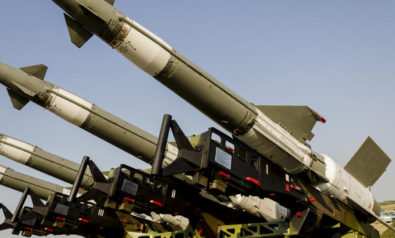


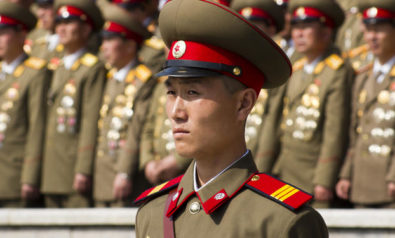
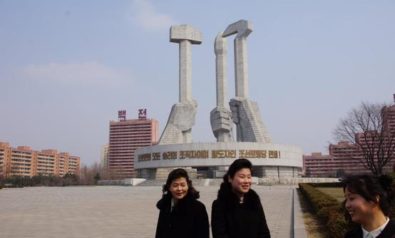

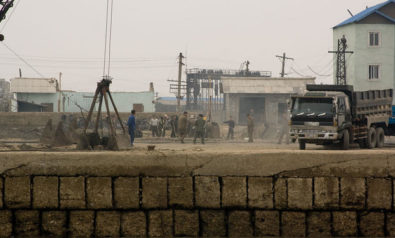

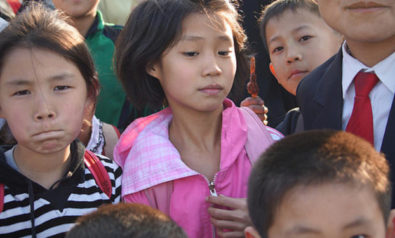

Comment